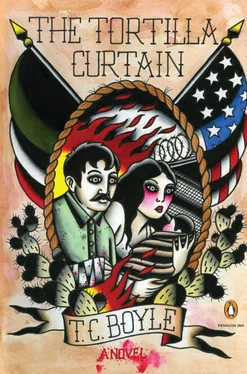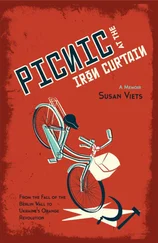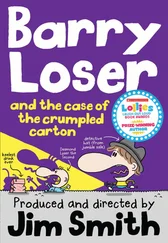T. Boyle - The Tortilla Curtain
Здесь есть возможность читать онлайн «T. Boyle - The Tortilla Curtain» весь текст электронной книги совершенно бесплатно (целиком полную версию без сокращений). В некоторых случаях можно слушать аудио, скачать через торрент в формате fb2 и присутствует краткое содержание. Год выпуска: 2011, Издательство: Penguin Books, Жанр: Современная проза, на английском языке. Описание произведения, (предисловие) а так же отзывы посетителей доступны на портале библиотеки ЛибКат.
- Название:The Tortilla Curtain
- Автор:
- Издательство:Penguin Books
- Жанр:
- Год:2011
- ISBN:нет данных
- Рейтинг книги:4 / 5. Голосов: 1
-
Избранное:Добавить в избранное
- Отзывы:
-
Ваша оценка:
- 80
- 1
- 2
- 3
- 4
- 5
The Tortilla Curtain: краткое содержание, описание и аннотация
Предлагаем к чтению аннотацию, описание, краткое содержание или предисловие (зависит от того, что написал сам автор книги «The Tortilla Curtain»). Если вы не нашли необходимую информацию о книге — напишите в комментариях, мы постараемся отыскать её.
The Tortilla Curtain — читать онлайн бесплатно полную книгу (весь текст) целиком
Ниже представлен текст книги, разбитый по страницам. Система сохранения места последней прочитанной страницы, позволяет с удобством читать онлайн бесплатно книгу «The Tortilla Curtain», без необходимости каждый раз заново искать на чём Вы остановились. Поставьте закладку, и сможете в любой момент перейти на страницу, на которой закончили чтение.
Интервал:
Закладка:
“You sound like you're trying to convince yourself.”
A gust rattled the panes. The Santa Anas were in full force and the koi pools would be clogged with litter. Kyra gave him her widest smile-nothing could dampen her mood tonight-and she took hold of both his hands and lifted them as if they were at the very start of an elaborate dance. “Maybe I am,” she said, and he let it drop.
On the way home they stopped in at Gitello's to pick up a few things-odds and ends-for the feast they were planning on Thursday, for Thanksgiving. They were having the Cherrystones and the Jardines over, as well as Kyra's sister and brother-in-law, with their three children, and Kyra's mother, who was flying in from San Francisco. They'd already spent two hundred and eighty dollars at the Von's in Woodland Hills, where nearly everything was cheaper, but the list of odds and ends had grown to daunting proportions. Kyra was doing the cooking, with Delaney as sous chef and the maid, Orbalina, on cleanup detail, and she was planning a traditional dinner: roast turkey with chestnut dressing and giblet gravy, mashed potatoes and turnips, a cranberry compote, steamed asparagus, three California wines and two French, baked winter squash soup and a salad of mixed field greens to start, a cheese course, a home-blended _granité__ of grapefruit and nectarine, and a hazelnut-risotto pudding and crème brûlée for dessert with espresso, Viennese coffee and Armagnac on the side.
Delaney retrieved the preliminary list from the folds of his wallet as Kyra strode brusquely through the door and selected a cart. The list was formidable. They needed whipping cream, baby carrots, heavy syrup, ground mace, five pounds of confectioners' sugar, balsamic vinegar, celery sticks and capers, among other things, as well as an assortment of cold cuts, marinated artichoke hearts, Greek olives and caponata for an antipasto platter she'd only just now decided on. As he followed her down the familiar aisles, watching her as she stood there examining the label on a can of smoked baby oysters or button mushrooms in their own juice, Delaney began to feel his mood lifting. There was nothing wrong, nothing at all. She was beautiful. She was his wife. He loved her. Why mope, why brood, why spend another angry night on the couch? The wall was there, a physical presence, undeniable, and it worked two ways, both for and against him, and if he was clever he could use it to his own advantage. It was Thanksgiving, and he should be thankful.
He stood at Kyra's side, touching her, offering suggestions and advice, inhaling the rich complex odor of her hair and body as she piled the cart high with bright irresistible packages, things they needed, things they'd run out of, things they might need or never need. Here it was, cornucopian, superabundant, all the fruits of the earth gathered and packaged and displayed for their benefit, for them and them alone. He felt better just being here, so much better he could barely contain himself. How could he have let such a petty thing come between them? He watched her select a jar of piccalilli relish and bend to set it in the cart, and a wave of tenderness swept over him. Suddenly he had his hands on her hips and he was pulling her to him and kissing her right there beneath the Diet Pepsi banner, under the full gaze of the lights and all the other shoppers with their carts and children and bland self-absorbed faces. And she kissed him back, with enthusiasm, and the promise of more to come.
And then, at the checkout, he was amazed all over again.
“You want your turkey?” the girl asked after she'd rung up the purchases-a hundred and six dollars and thirty-nine cents, and why not? The girl was dark-eyed, with a wild pouf of sprayed-up hair and penciled-in eyebrows, like a worldly waif in the silent films. She was snapping gum, animated, bathing in the endless shower of all this abundance.
“Turkey?” Delaney said. “What turkey?” Their turkey was home in the refrigerator, eighteen pounds, four ounces, range-fed and fresh-killed.
“It's a special offer, just this week only,” the girl said, her voice a breathless trill playing over the wad of pink gum Delaney could just catch a glimpse of when she opened her mouth to say “special.”
“If your order totals over fifty dollars you get a free twelve-pound turkey, one to a customer.”
“But we already-” Delaney began, and Kyra cut him off. “Yes,” she said, looking up from her compact, “thank you.”
“Carlos!” the girl sang out, shouting toward the distant fluorescent glare of the meat department at the back of the store. “Bring me another turkey, will you?”
For his part, Cándido Rincón didn't exactly welcome the season either. That it was hot, that the winds blew and the sweat dried from your skin almost before it had a chance to spill from the pores, was fine and good, ideal even-if only it could be sustained indefinitely, if only the sun would grace him for another two or three months. But he knew that the winds would soon blow themselves out and the sky would blacken and rot far out over the ocean and then come ashore to die. He couldn't smell the rains yet, but he knew they were coming. The days were truncated. The nights were cold. And where was his son going to be born-in a bed with a doctor looking on or in a hut with the rain driving down and nobody there but Cándido with a pot of water and his rusty knife?
None of this sat easy with him as he trudged up the rutted trail to the market. América was down below, in a funk-she wouldn't leave the lean-to, no matter how much he might beg or plead. She was like a deranged person, sitting there over her swollen belly, rocking back and forth and chanting to herself. She scared him. No matter what he did, no matter what he brought her-magazines, clothes, things to eat, a rattle and a pair of booties for the baby-she'd just give him the same numbed look, as if she didn't recognize him-or didn't want to recognize him.
It was this place, he knew it. The defeat of having to come back here, of having to live like vagos after the promise of that day in Canoga Park, after the luncheonette and the flush toilet and all those rich things and the houses with the cars out front and the peace and security inside. She'd had a breakdown then, like nothing he'd ever seen-even on the streets of Tijuana, even in the worst and lowest places. He'd seen women in hysterics before, but this was something else altogether, this was like a fit, a spell, as if somebody had put a curse on her. She wouldn't stand up. Wouldn't walk. Wouldn't eat the chicken he'd found for her, perfectly good pieces of Kentucky Fried Chicken the _gabachos__ had thrown away untouched, and he'd had to drag her back down to their camp, fighting her all the way. Yes, they were desperate. Yes, they'd lost everything. Yes, he was a fool and a liar and he'd failed her yet again. But still they had to make the best of it, had to survive, didn't she see that?
She didn't. For the first few days she just sat there, immobilized, catatonic. He'd leave to go out scrounging for food, for work, for the cans he found along the roadway and turned in for a handful of nickels and pennies, and when he came back, whether it was two hours later or six or eight, there she'd be, just as he'd left her, sometimes in the same pose even. She wouldn't talk to him. She refused to cook. She stopped washing her hair and her body and within the week she stank like one of the homeless, like a wild thing, like a corpse. Her eyes gored him. He began to think he hated her.
Then he met Señor Willis. It was serendipity, good luck instead of bad. He'd got work a few times over the course of the first two weeks after the Canoga Park idiocy, standing out front of the post office with a knot of other men, not so many now, and keeping a sharp eye out for the INS or some vigilante _gabacho,__ defying them, yes, but what choice did he have? The labor exchange was gone. Someone had come in and planted some pepper trees, little sticks six or eight feet high with a puff of foliage at the top, black plastic hose running from tree to tree like a lifeline. That was the labor exchange now: saplings in the ground and the dead blasted earth. So he stood there outside the post office and took his chances, breathing hard every time a car slowed-was it a job or a bust? — and he was there late one howling hot dry-as-a-bone day, two o'clock probably, and a sledgehammered old Corvair pulled into the lot like some arthritic bird, and there, sitting at the wheel, was a man in the same shape as the car, an old white man with a sunken chest and turtle-meat arms, white hairs growing out of his nose and ears. He just sat there, looking at Cándido out of watery old gray-blue eyes that were distended by the lenses of his glasses till they didn't look like eyes at all, till they looked like mouths, grasping crazy wide-open gray-blue mouths. He was drunk. You could see that from twenty feet away. “Hey, _muchacho,”__ he called out of the passenger's-side window, which still had the sparse teeth of broken glass sprouting from the frame, the rest a vacancy. _“¿Quieres trabajar?”__
Читать дальшеИнтервал:
Закладка:
Похожие книги на «The Tortilla Curtain»
Представляем Вашему вниманию похожие книги на «The Tortilla Curtain» списком для выбора. Мы отобрали схожую по названию и смыслу литературу в надежде предоставить читателям больше вариантов отыскать новые, интересные, ещё непрочитанные произведения.
Обсуждение, отзывы о книге «The Tortilla Curtain» и просто собственные мнения читателей. Оставьте ваши комментарии, напишите, что Вы думаете о произведении, его смысле или главных героях. Укажите что конкретно понравилось, а что нет, и почему Вы так считаете.












